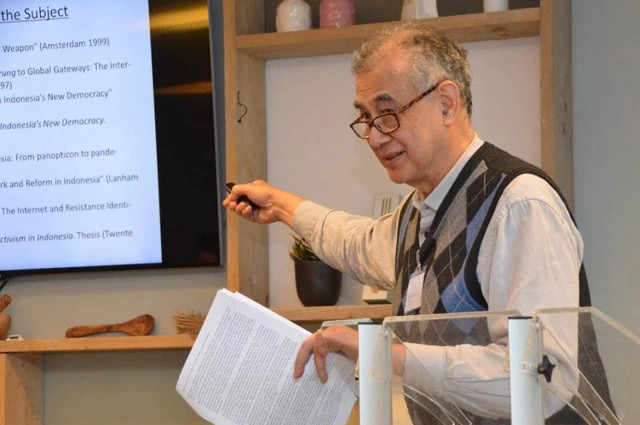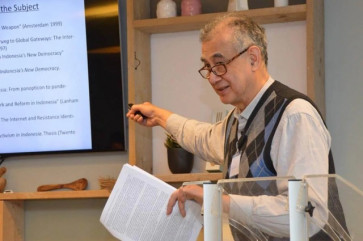Popular Reads
Top Results
Can't find what you're looking for?
View all search resultsPopular Reads
Top Results
Can't find what you're looking for?
View all search results‘Indonesia no longer my home’: Confession of a political exile
In Indonesia, past human rights violations are still covered up and even hailed as heroic deeds by some.
Change text size
Gift Premium Articles
to Anyone
“I am not nationalistic,” says Waruno Mahdi, one of the Indonesians whose citizenship was annulled by the Soeharto regime in the wake of the aborted coup attempt blamed on the Indonesian Communist Party (PKI) 57 years ago.
Indeed, the impact of the 1965 communist purge did not only hit people who were in Indonesia but also those overseas. Thousands of them were unable to return home because their passports were confiscated if they were considered leftists or supporters of founding president Sukarno. These people ended up living overseas, and identify themselves as Indonesian political exiles.
Most of the Indonesian political exiles I met still express their allegiance to Indonesia, and that returning to Indonesia remains their dream. Many even hope that they will be buried or their ashes scattered in Indonesia.
But not Waruno. He told me without hesitation that he feels he is German and that his homeland is Germany.
This is a hard pill to swallow for nationalistic Indonesians and for the government, which keeps reminding Indonesian diasporas to love their country and encouraging them to promote their country of origin.
The speeches and statements of President Joko “Jokowi” Widodo and most Indonesian high-ranking officials seem to remind Indonesians of John F. Kennedy's famous historic words, “Ask not what your country can do for you -- ask what you can do for your country.” Indonesian political exiles are often conscious of this demand, and while I believe they genuinely miss Indonesia, there seems to be pressure for them to demonstrate this sentiment in order not to be considered traitors or unnationalistic.
However, if the officials want to apply this philosophy, why do they not apply it to themselves first? Why cannot we (the common people) ask these officials the same question: What have they done for the country (especially in relation to human rights)? Is championing human rights not one of the most important things we must do for the country? And if they have not done much in relation to human rights and their policies make it harder for people like Waruno to be accepted, what do you expect?



















